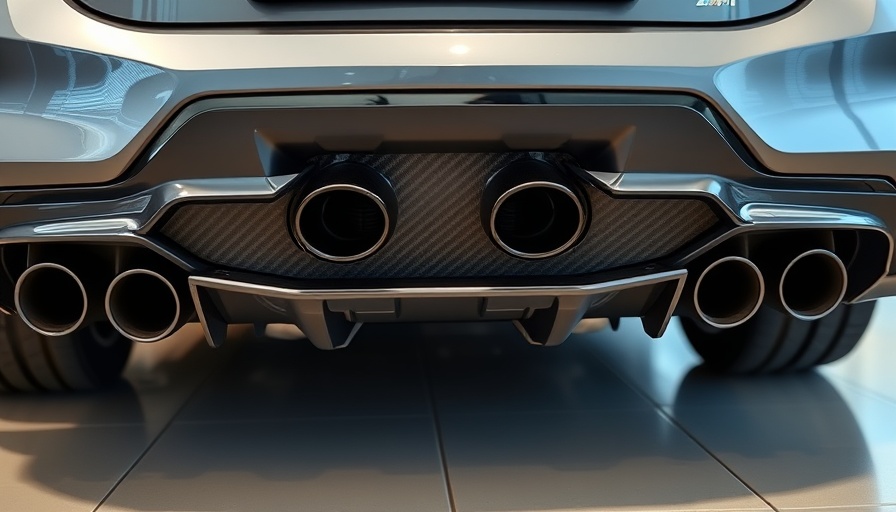
BMW’s Innovative Shift to Plant-Based Materials
In an age where sustainability shapes consumer choices, BMW is making headlines with a pioneering approach to automotive engineering. The renowned automaker recently announced the introduction of 'natural fiber composites' in their upcoming M car line-up. This material, crafted from flax fibers, offers an eco-friendly alternative to traditional carbon fiber, heralding a new era in weight reduction and environmental responsibility in high-performance vehicles.
The Rise of Eco-Conscious Vehicles
Today, the automotive landscape is more focused than ever on sustainable practices. As consumers increasingly prioritize eco-friendliness, manufacturers are adapting through innovations in both materials and processes. BMW is leading this charge, citing substantial CO2 emission reductions of approximately 40% in production when replacing carbon fiber with these flax-based composites.
How It Works: The Technology Behind Natural Fiber Composites
The development of natural fiber composites represents years of dedicated research, collaboration, and testing. With contributions from Swiss clean-tech firm Bcomp, these innovative materials promise durability and strength, achieving performance benchmarks suitable for competitive racing. Their successful use in motorsport, such as BMW's M4 GT4 car, underscores their practicality and readiness for consumer vehicles.
Performance Meets Sustainability
BMW has set high standards not only for luxury and performance but also for environmental stewardship. The introduction of natural fiber materials aligns seamlessly with the company's motto: “Born on the racetrack. Made for the streets.” This statement reflects BMW’s promise to deliver vehicles that perform exceptionally while also contributing to a healthier planet.
Why This Matters for Car Buyers
For buyers interested in eco-friendly options, this development opens new avenues. Consumers looking for high-performance vehicles that don't compromise on sustainability will find the new BMW M offerings compelling. Moreover, as more manufacturers shift towards plant-based materials, the demand for environmentally friendly cars continues to rise, signalling a potential shift in market trends.
A Future of Eco-Friendly Driving
As BMW prepares to integrate these materials into their M range, they not only position themselves as industry leaders but also inspire a collective movement towards greener automotive technologies. Through their innovative use of natural fibers, BMW is paving the way for a future where performance and sustainability go hand in hand.
In conclusion, as BMW revolutionizes its M cars with plant-based composites, it exemplifies a significant step in automotive evolution—one that prioritizes sustainability without sacrificing performance.
 Add Row
Add Row  Add
Add 




Write A Comment